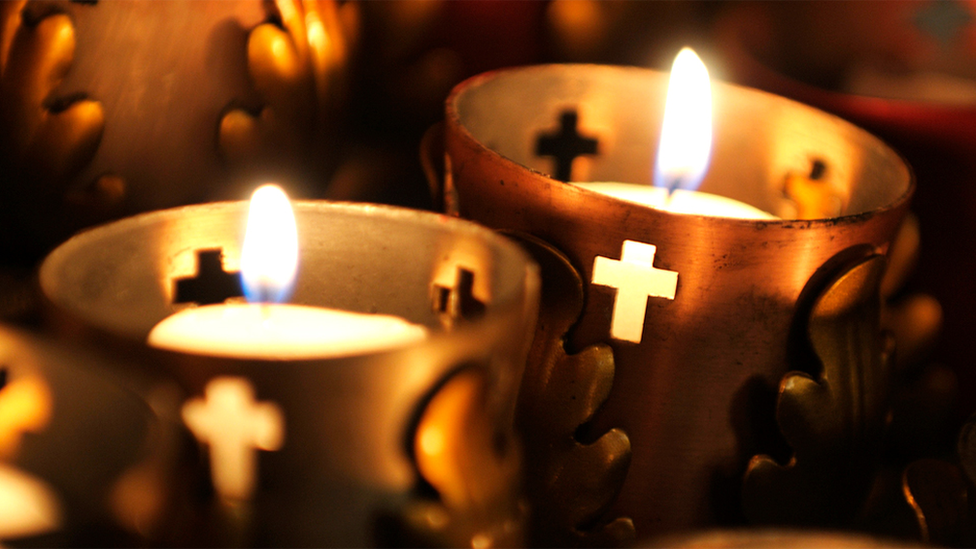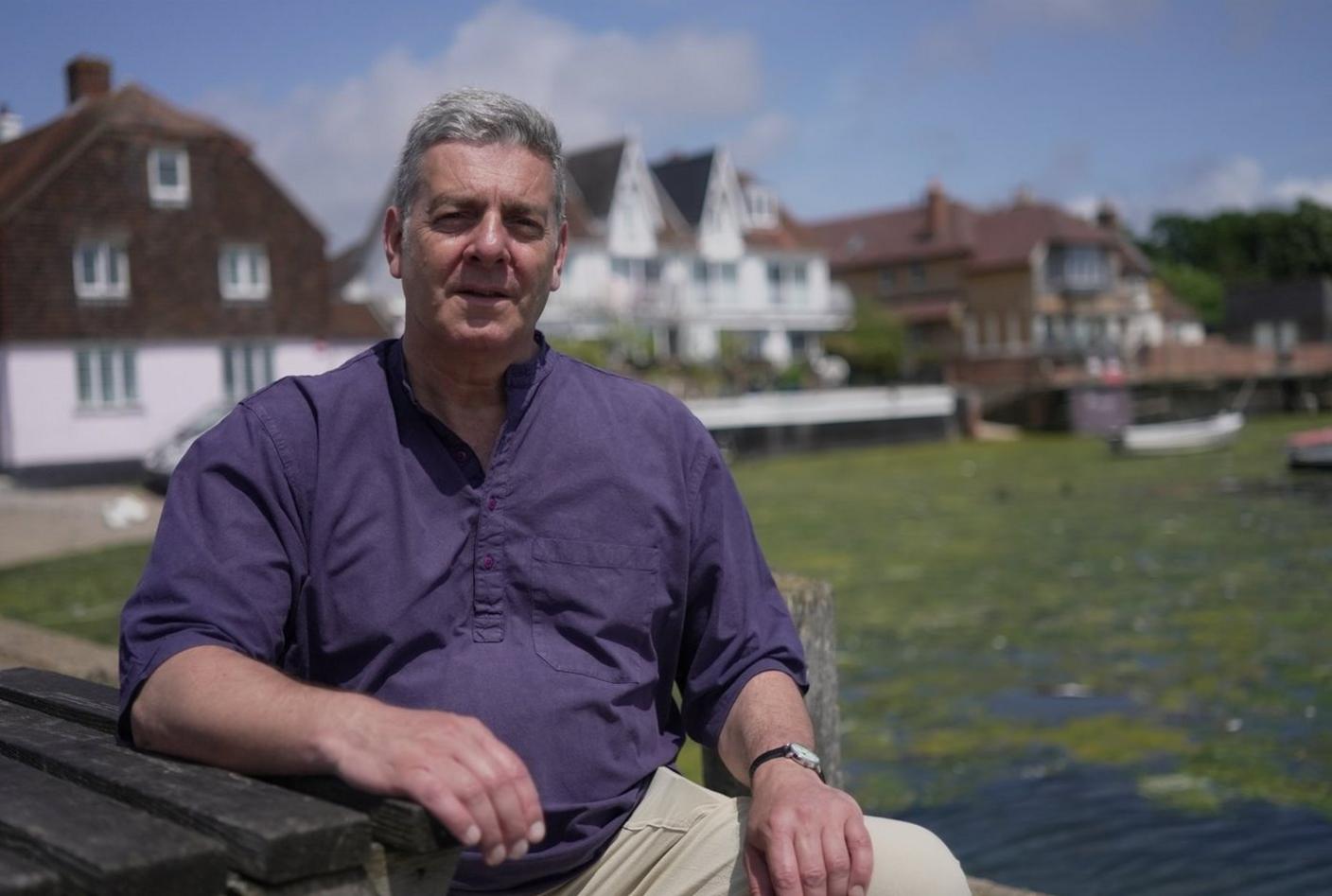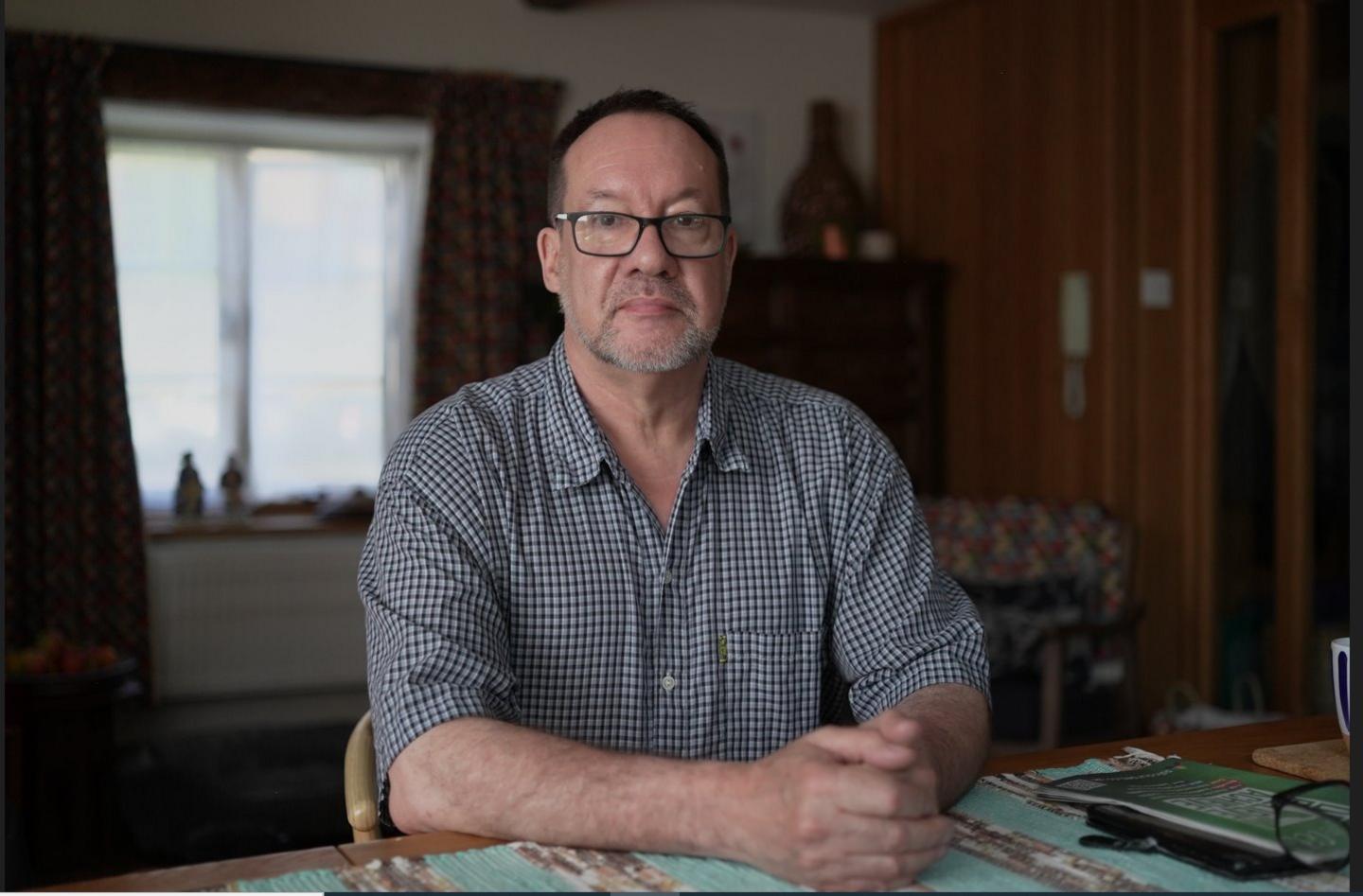Church of England says abuse compensation scheme 'broadest yet'
- Published

The Church has set aside an initial £150m but scheme details have yet to be finalised
The Church of England has announced plans for what it says is the broadest and most ambitious compensation scheme of its kind for victims of abuse.
But survivors waiting years for redress say they had hoped for more details on when the scheme will be rolled out.
It will be open to anyone who has faced physical, sexual, emotional or spiritual abuse by someone representing the Church.
But some fear being re-traumatised by the application process.
In 2020, Church of England leaders made a commitment to settle compensation claims quickly where abuse had been acknowledged.
It now says a robust scheme will take some time to be established and the parameters are still being discussed.
The scheme will be administered by a still-to-be-determined third party.
The Church promises survivors who have never before come forward will be eligible.
"We want to take a broad and a generous approach to this and not a begrudging one that would sit ill with our commitment to provide genuine redress, to express genuine regret and repentance for what's happened," the Right Reverend Philip Mounstephen, Bishop of Truro, told the BBC.
But the bishop, chair of the Church of England's national redress board, acknowledged there was little idea of how many people might come forward.
He still promised redress would be delivered in a "timely" manner.
"It is a huge initiative, but survivors want a one-stop shop, and that's what this scheme is designed to provide them with," he said.
The Church is making a commitment to provide a financial settlement as well as emotional and therapeutic support and an apology as each survivor sees fit.

Julian Whiting says people are nervous about having to engage with the Church
"It's about time but why couldn't the Church find it within itself to have done this years ago?," asked Julian Whiting, who suffered sexual abuse at a school run by the Church of England.
"If it's genuinely going to happen it's extremely good news, but we're nervous about being re-abused, having to engage with the Church about our stories," Mr Whiting said.
He is supportive of the scheme's very broad scope but is also concerned this could mean claims could yet take years to be settled.
The Church says its commissioners' board has agreed to set aside £150m in initial funding once the scheme is in place to ensure swift financial payouts.
The BBC understands that the eligibility of applicants will first be assessed, and there will be different bands of financial settlement for survivors, depending on the nature of the abuse and the way their case was handled.
Some abuse survivors who before now independently pursued civil compensation have reported bad experiences in dealing with the Church.

Gilo: "The Church's reputation is at stake here"
One survivor who wants only to be known as Gilo says the process was "shameful" and "toxic" and he was treated like an adversary in spite of his abuse as a teenager by two senior members of the Church of England.
"The process was profoundly cruel and the new redress scheme must avoid that at all costs. They must make sure that it is a compassionate, authentic process of redress, not another circus," Gilo said.
"They need to step up to the plate and make sure that this is delivered properly. The Church's reputation is at stake here."
Other survivors fear they will be retraumatised by having to prove abuse that has already been documented and acknowledged.
Bishop Mounstephen responded: "I fully and entirely accept that there will be people who are cynical and sceptical about this and who have very good reason to be.
"I myself have encountered appalling practices in safeguarding and belittling of the experiences of survivors. And that is a source of great shame and of great regret.
"That's why it's all the more important that we get this right and do it well."
As the proposal is now put to the Church's national assembly, survivors await a clear idea of when the scheme will finally be open to applications.